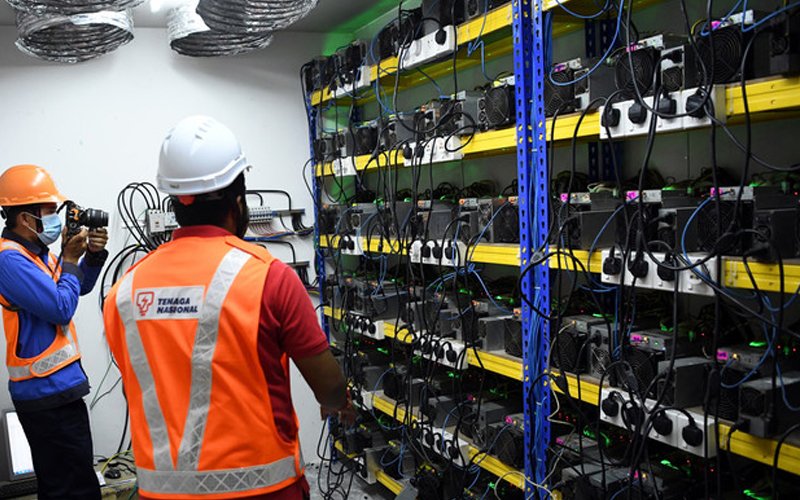As Bitcoin miners face mounting financial pressure due to the upcoming halving event in April 2024, which will slash the Bitcoin block subsidy from 6.25 BTC to 3.125 BTC, innovative solutions are being explored to offset rising operational costs. Andy Fajar Handika, CEO and co-founder of Loka Mining, a decentralized mining pool operator, has proposed using forward hashrate contracts as a means to finance short-term needs and sustain growth in this capital-intensive industry.
Forward Hashrate Contracts: A New Financial Tool for Miners
Handika introduced the concept of forward hashrate contracts, which allow miners to sell their future hashrate in exchange for fiat-denominated loans from creditors. These contracts are designed to help miners secure the capital needed to maintain and expand operations without having to sell their Bitcoin holdings or rely on traditional financing methods, such as initial public offerings (IPOs) or issuing corporate debt.
Handika explained that these tokenized contracts, which are now offered by Loka Mining in 3-month, 6-month, and 1-year terms, provide a way for miners to hedge against Bitcoin price volatility. By selling future hashrate, miners can use the loan proceeds to purchase more mining equipment and stabilize their financial position. This arrangement shifts the risk of Bitcoin price fluctuations onto the investors who buy the mining contracts, allowing miners to focus on their core operations.
Benefits for Creditors and Miners Alike
The forward hashrate contracts offer several advantages for both miners and creditors. For creditors, these contracts can be reused as collateral for other loans, similar to asset restaking, providing them with additional financial flexibility. For smaller mining operations that typically lack access to large-scale funding options, this innovative approach offers a viable alternative to using Bitcoin as collateral in decentralized finance (DeFi) protocols, which can be risky due to the volatile nature of the cryptocurrency market.
Handika pointed to the recent “black swan” event on August 5, 2024, when Bitcoin’s price dropped from around $59,000 to approximately $49,500, highlighting the risks associated with using Bitcoin as collateral. By contrast, forward hashrate contracts allow miners to secure financing without exposing themselves to the same level of risk from market downturns.
Economic Strain on the Bitcoin Mining Industry
The Bitcoin mining industry is currently facing significant economic challenges. A recent report from cloud mining firm BitFuFu revealed that mining expenses have surged by 168% over the past 12 months. This increase in costs, coupled with the reduced block subsidy, has pushed many mining companies to the brink, forcing them to explore diversification into areas like artificial intelligence and high-performance computing to maintain profitability.
A JPMorgan report further underscored the difficulties facing the industry, noting that companies with substantial cash reserves, such as CleanSpark and Riot Platforms, have begun acquiring smaller, struggling mining firms as the industry consolidates.
As the April 2024 halving approaches, the need for innovative financial strategies like forward hashrate contracts becomes increasingly critical for the survival and growth of Bitcoin mining operations.
